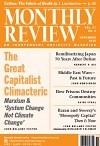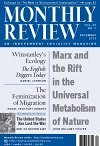Syria

According to renowned Marxist economist Samir Amin, the recent Arab Spring uprisings comprise an integral part of a massive “second awakening” of the Global South. From the self-immolation in December 2010 of a Tunisian street vendor, to the consequent outcries in Cairo’s Tahrir Square against poverty and corruption, to the ongoing upheavals across the Middle East and Northern Africa, the Arab world is shaping what may become of Western imperialism—an already tottering and overextended system.
The Reawakening of the Arab World—an updated and expanded version of Amin’s The People’s Spring, first published in 2012 by Pambazuka Press—examines the complex interplay of nations regarding the Arab Spring and its continuing, turbulent seasons. Beginning with Amin’s compelling interpretation of the 2011 popular Arab explosions, the book is comprised of five chapters—including a new chapter analyzing U.S. geo-strategy. Samir Amin sees the United States, in an increasingly multi-polar world, as a victim of overreach, caught in its own web of attempts to contain the challenge of China, while confronting the staying power of nations such as Syria and Iran. The growing, deeply-felt need of the Arab people for independent, popular democracy is the cause of their awakening, says Amin. It this awakening to democracy that the United States fears most, since real self-government by independent nations would necessarily mean the end of U.S. empire, and the economic liberalism that has kept it in place. The way forward for the Arab world, Amin argues, is to take on, not just Western imperialism, but also capitalism itself. | more…
Rula Jurdi Abisaab and Malek Abisaab, The Shi’ites of Lebanon: Modernism, Communism, and Hizbullah’s Islamists (Syracuse, NY: Syracuse University Press, 2014), 350 pages, $49.95, hardcover.
In the West today, political Islam is mostly equated with ISIS’s spectacle of violence, and with the narrow, bigoted understanding of religion and society that inspires it. It will thus intrigue many readers to discover that the legacy of Islamic intellectual and political activity, from the turn of the twentieth century until today, bore the imprint of a complex interaction between Communist and leftist traditions. A recent book by two professors at McGill University, Rula Jurdi Abisaab and Malek Abisaab, takes on the ambitious task of tracing the history of the sometimes symbiotic, sometimes confrontational relationship among Shi’i communities and clerics in Lebanon, along with occasional discussions of related issues in Iraqi politics. Based on a rich set of primary documents from both countries, the authors describe in great detail the rise and fall of the Communist experience in the region, the shortcomings of the left as it was gradually superseded by Islamic party formations, and the deep debt of the latter to the former. | more…

To understand why the Middle East is now in shambles, with the United States currently involved simultaneously in wars against both the Assad government in Syria and the Islamic State in Iraq, generating the greatest refugee crisis in Europe since the Second World War, it is necessary to go back almost a quarter-century to the 1991 Persian Gulf War. The Gulf War, unleashed by the United States in response to Iraq’s invasion of Kuwait, was made possible by the growing disorder in the USSR followed by its demise later that same year. The USSR’s disappearance from the world stage allowed the United States to shift to a naked imperialist stance—though justified in the manner of the colonial empires of old as “anti-terrorism” and “humanitarian intervention”—not only in the Middle East, but also along the entire great arc that had constituted the perimeter of the former Soviet Union. | more…
With the collapse of the Soviet Union and the end of the Cold War, elements within the U.S. ruling class came to believe that their country was militarily invincible. Indeed, they believed this newfound military superiority over any potential rival was something new in human history. So great was its technological advantage, the United States could destroy its enemies with complete impunity. A long-heralded Revolution in Military Affairs was taking place, enabling the United States to reshape the world. New smart technologies would disperse the “fog of war,” making it possible for the United States to kill its enemies without their being able to strike back, and the “Vietnam syndrome” could be overcome once and for all.… Even so, at this point in time, the U.S. government proceeded with considerable caution. The then-secretary of defense, Dick Cheney no less, made clear that the United States did not invade and occupy Iraq at this time because of the danger of finding itself in a “quagmire” where it would be taking casualties while the Kurds, the Shia, and the Sunnis fought it out. The administration decided not to involve itself in “that civil war.” Such a commitment would have had to involve the use of “overwhelming force” for an extended period if it was to have any chance of success. This was in 1991. Ten years later such caution had been replaced by an overweening self-confidence, by a belief that the United States could completely reshape the Middle East, starting with Iraq, and then moving on to Syria and Iran. And, moreover, this could all be achieved with a comparatively small invading and occupying army. | more…
Lenin, Bukharin, Stalin, and Trotsky in Russia, as well as Mao, Zhou Enlai, and Den Xiaoping in China, shaped the history of the two great revolutions of the twentieth century. As leaders of revolutionary communist parties and then later as leaders of revolutionary states, they were confronted with the problems faced by a triumphant revolution in countries of peripheral capitalism and forced to “revise”…the theses inherited from the historical Marxism of the Second International.… With the benefit of hindsight, I will indicate here the limitations of their analyses. Lenin and Bukharin considered imperialism to be a new stage (“the highest”) of capitalism associated with the development of monopolies. I question this thesis and contend that historical capitalism has always been imperialist, in the sense that it has led to a polarization between centers and peripheries since its origin (the sixteenth century), which has only increased over the course of its later globalized development. | more…
When international media were broadcasting live video footage of Tunisians gathering in hundreds of thousands in front of the central office in Tunis of the long-terrifying ministry of home security, chanting in one voice “the people want to bring down the regime,” something had already changed: ordinary people realized they could make huge changes. Weeks later, the Egyptian uprising removed the Mubarak regime that had been entrenched in power for over thirty years…. The neoliberal forms of imperial rule that had destroyed the hopes of the liberation movements were under attack. In order to counter the possibilities for a massive breakthrough at the popular level, the Western forces mounted an invasion of Libya using the mantra of humanitarianism to disrupt, militarily, political and economic life in Africa. Later in collusion with the counter-revolutionary forces in the Egyptian military, Western imperialism sought to roll back the gains of people in the streets of Tunis and Cairo. | more…
An Integral Component and Driving Force of Imperialism in the Phase of Monopoly-Finance Capitalism
According to Michał Kalecki, the imperialist system of the Keynesian era rested on a triangular structure that was composed of (a) state-financed military production (i.e., the military-corporate complex, often called the “military-industrial complex”), (b) media propaganda (media-corporate complex), and (c) a putative full-employment/welfare-oriented superstructure (Keynesianism) underpinned by the war machine, serving to justify it. Building on Kalecki’s work, John Bellamy Foster, Hannah Holleman, and Robert W. McChesney provided an updated version of the theory of imperialism of the monopoly-capital tradition by laying emphasis on the primary role of the above triangle in the restructuring and preservation of the contemporary imperialist system.. Expanding on their work, I argue that one of the most significant changes in the triangular structure of contemporary imperialism is in its third pillar, particularly with the abandonment of the welfare-oriented paradigm and the adoption of the neoliberal globalization project. | more…
The media compelled all of us to follow closely both the Scottish referendum of September 2014 and the conflict between Russia and Ukraine that took on increased momentum starting in spring 2014. We all heard two opposing stories: the unity of Great Britain must be protected in the interest of the English and Scottish people. Moreover, the Scots freely chose, through a democratic vote, to remain in the Union. In contrast, we were told that the independence of Ukraine, freely chosen by the Ukrainian people, is being threatened by the Great Russian expansionist aims of the dictator Putin. Let us look at these facts that were presented to us as incontrovertibly obvious for a good-faith observer. | more…
Multitude or Generalized Proletarianization?
The term multitude was first used in Europe, it seems, by the Dutch philosopher Spinoza, to whom Michael Hardt and Antonio Negri explicitly refer. It then designated the “common people” who were a majority in the cities of the Ancien Régime and deprived of participation in political power (reserved for the monarch and the aristocracy), economic power (reserved for property owners of feudal ancestry or for the nascent financial bourgeoisie, both urban and rural—including the rich peasants), and social power (reserved for the Church and its clerics). The status of the common people varied. In the city, they were artisans, small merchants, pieceworkers, paupers, and beggars; in the country, they were landless. The common people in the cities were restless and frequently exploded into violent insurrections. They were often mobilized by others—particularly the nascent bourgeoisie, the active component of the Third Estate in France—in their conflicts with the aristocracy. | more…
France and the United States
To support the “war on terrorism,” the concept of war has been introduced into the criminal code of all Western countries. This is the first step on the way to a merger between criminal law and the law of war. Massive spying by the secret services of a country on its citizens has today become the norm. The Snowden revelations on the operations of the NSA have only brought to light a widespread surveillance that is already legalized.… Despite the prominence given to the practices of U.S. intelligence agencies and the resulting indignation in France, the French parliament just adopted a military planning law that includes measures allowing practices similar to those of the NSA, specifically massive spying by intelligence agencies on citizens. | more…
The following reflections deal with a permanent and fundamental challenge that has confronted, and continues to confront, all popular movements struggling against capitalism. By this I mean both those of movements whose explicit radical aim is to abolish the system based on private proprietorship over the modern means of production (capital) in order to replace it with a system based on workers’ social proprietorship, and those of movements which, without going so far, involve mobilization aimed at real and significant transformation of the relations between labor (“employed by capital”) and capital (“which employs the workers”).… Taken as a whole, many of these movements can be termed “movements toward socialism.” | more…

The AFL-CIO held its annual convention this past September in Los Angeles. Many commentators hailed this meeting as historic, one in which the nation’s major labor federation finally came to grips with the near disappearance and growing political irrelevance of unions. Union density is abysmally low and declining, with an astonishing 6.6 percent of private sector employees now organized, lower than at any time in the past century. And, with rare exceptions, labor’s ability to influence legislation and workplace regulation is nonexistent. It could not even prevent passage last year of a right-to-work law in Michigan, the cradle of industrial unionism. All of this has translated into falling wages and benefits for union and nonunion workers alike, since the union threat effect on nonunion employers has diminished dramatically.… To reverse course, AFL-CIO leaders laid out a plan to broaden the federation’s membership base to include nonunion workers and members of fraternal groups, such as immigrant advocates and environmental organizations.… While we should applaud… [their] efforts, they leave important questions unanswered. | more…


